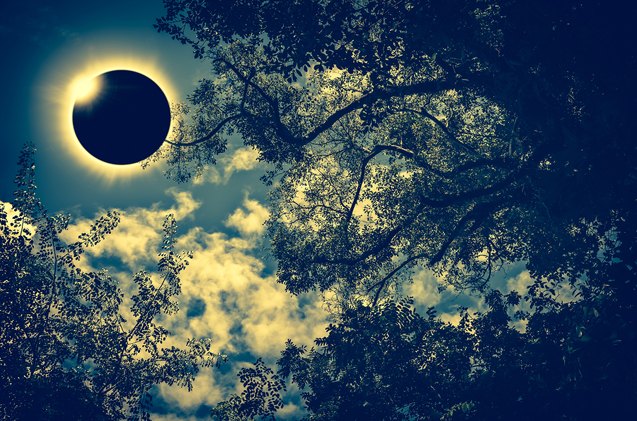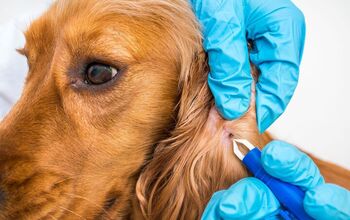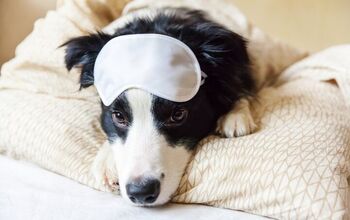Does Your Pet Really Need Ray-Bans for the Solar Eclipse?

So today’s the big day and while many pet parents may be over-thinking the “do I or don’t I need sunglasses for my pooch” question, many more are just curious as to how their little guy is going to react when the new moon crosses in front of the sun and the lights go out during your game of catch.
Apparently their reaction may be more intriguing then the eclipse itself!
Related: Why Do Cats Go Crazy At Night?
It seems our internal body clocks (AKA circadian rhythm) are driven by an area in our brain that responds to light and dark. When it’s sunny out, we’re wide awake while on gloomy days we feel like a nap. Our pets are similar and when daylight suddenly turns to darkness and the temperatures drop, both wild and domestic animals can have a strong instinctive reaction.
Dairy cows have been known to return to their barn because they typically prefer to eat during daylight. Bees and ants head back to their nests, crickets start chirping, owls and bats become active (because the mosquitos have come out) and whales have been known to breach above the waves. Its also reported that orb-web weaving spiders that typically demolish their webs at night and spin anew each morning begin to destroy their webs during an eclipse.
Related: What You Need to Know About Dog Seizures
And while study results are inconclusive, pets prone to epileptic seizures may need to be monitored as owners report that lunar cycles can trigger an episode.
According to Meaghan Callahan, DVM, MS, CVA (Veterinarian and Acupuncturist) at Pebble Creek Animal Hospital in Tampa, Florida, while it’s unlikely your pet will have an adverse reaction it could cause anxiety and exacerbate any underlying stress related condition. The solution is simple. “Give extra love and attention for a distraction during this time. Having an ‘eclipse party,’ featuring their favorite treat is a great way to pass the time.”
Although there are a lot of informal observations about how wild and domestic animals react to a solar eclipse there is very little official tracking of these behaviors; the California Academy of Sciences it determined to change that. They’ve created an app called iNaturalist and are encouraging every interested pet parent to log in, observe their pet and share their findings for future studies. Though I suspect my cats will sleep through it all, I’m up for an experiment!
So back to that question about whether you need to invest in a pair of shades for Rover. According to Angela Speck, director of astronomy and a professor of astrophysics at the University of Missouri, “On a normal day, your pets don’t try to look at the sun, and therefore don’t damage their eyes. And on this day, they’re not going to do it, either.” Kinda what I thought too.

Sharing space with three seriously judgy Schnoodles and a feline who prefers to be left alone. #LivingMyBestLife
More by Mary Simpson























